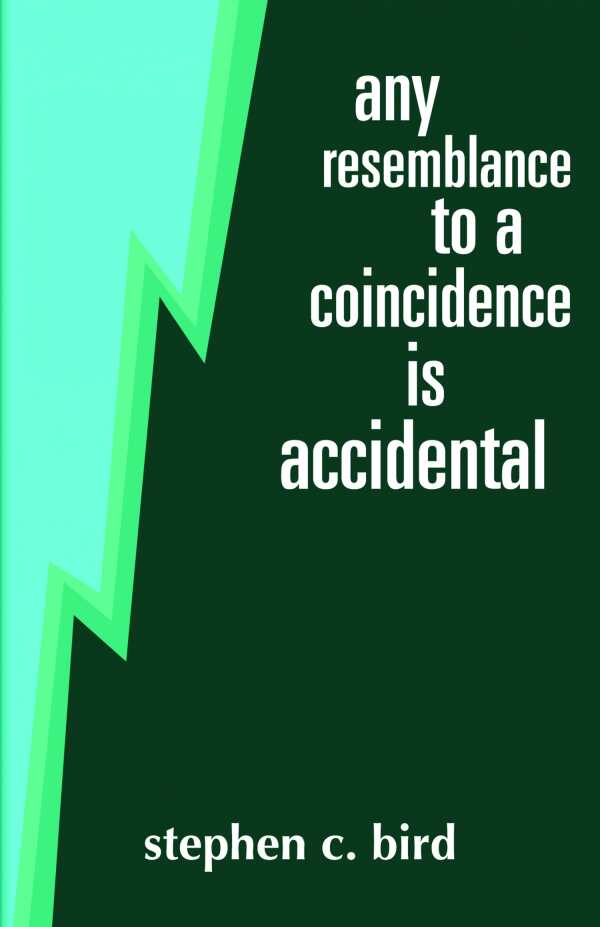It looks like you've stumbled upon a page meant to be read by our code instead of viewed directly. You're probably looking for this page.
Any Resemblance To a Coincidence is Accidental
Irreverent sketches in a satirized metropolis portray emotional disenchantment.
Stephen C. Bird’s collection of related short stories, Any Resemblance to a Coincidence Is Accidental, presents a hyper-electric commentary on modern life, from online personas to urban subculture. A motley set of recurring characters make their way through absurd situations in a narrative filled with movie references and skewed perspectives.
Seventeen stories follow Fakebook girl, Noloso Chushingura, Pavlina Perestroika, and other misfits living on the fringes of Amourrica Profunda. In a mixture of dizzying monologues, lists, third-person narrations, and haiku, their voices provide a cross-section of insecurity, self-aggrandizement, and opinions on topics that include Broadway, gay culture, sexuality, and masks people wear to avoid pain.
Loosely drawn, sometimes homophobic characters keep the work from gaining a strong focus. Instead, characters appear in service of strange situations: a castrated go-go boy freezes time, a woman finds a porn key baby (perhaps a spin on the port keys of Harry Potter’s world), a chorus of “Grrrlfriends” serve as a counterpoint for another woman, and the leader of a fan club for the Weak-ed musical details membership requirements.
Names for locations, such as “Nueva Jork,” “Doucheyland,” “Palin Town,” “The Crew-Ella de Parkay Villa,” and “Bore-Hos” instead of “boroughs,” along with intentional, winking substitutions for well-known items, such as “Dumbphone” in lieu of smartphone, disrupt the work when they draw attention to the lifestyles they poke fun at. Using only a handful of these inventive words would allow them to stand in sharper relief. Other excesses in the writing include a couple’s lesbianism solely for humor, jabs at rainbow pride that take a turn toward bodily humor, and a chapter penned in the voice of a hillbilly clairvoyant, which uses exaggerated dialect in a way that makes language itself, rather than the message, the dominant feature.
The plots are sometimes macabre and often tinged with cruelty; in one instance of cavalier murder, the murderer escapes without real consequences. More effective moments take place between the lines: a drag queen’s confrontational speech belies vulnerability, and a stand-up comic’s ill-received routine contains the passing remark, “I’m not getting any better.” Such admissions humanize the characters. They may be over the top, but they’re not as out of touch as they first seem.
Amid the blare of poseurs and hustlers, streetwise and self-made figures, the prominent thread is one of deep-seated ambivalence and loneliness.
Reviewed by
Karen Rigby
Disclosure: This article is not an endorsement, but a review. The publisher of this book provided free copies of the book and paid a small fee to have their book reviewed by a professional reviewer. Foreword Reviews and Clarion Reviews make no guarantee that the publisher will receive a positive review. Foreword Magazine, Inc. is disclosing this in accordance with the Federal Trade Commission’s 16 CFR, Part 255.
